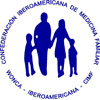Forming the family physician and community in the rural municipality: an experience
Resumo
Objetivos: Report the experience of a residency program in family physician and community in the state of São Paulo-Brazil takes a community to a small city with rural characteristics such as training scenario of second year residents for over 14 years medicine.
Metodologia ou descrição da experiência: This is an experience report conducted in the Cassia dos Coqueiros country with 2,634 inhabitants , with 51% men and 49 % women . Has a predominance of young adults 10 to 19 years ( 17.5 % ) and 32 % of the resident population in the rural area . Medical care is provided in health unit , through the Family Health Strategy (FHS ) , with 100% coverage of the area , a team composed by the physician , nurse, nursing assistant and six community workers . It also has the 6th year students of medicine and a second-year resident of family physician and community Residency Program of the Hospital of the FMRP - USP (HCFMRP - USP).
Resultados: Since 1999, fourteen performed the stage of 4 weeks in the Cassia de Coqueiros. Throughout these 15 years of the program, 124 residents went to this stage participating in the routine of a team of health of the rural family activities: groups, consultations, home visits in rural and urban areas, health promotion. This stage is supervised by teachers from FMRP/USP enhancing teaching-service integration and training of human resources consonants health needs of the population. During all these years the residents have experienced the challenges of the role of the family physician and community in small towns with rural characteristics.
Conclusões ou hipóteses: This stage contributes to a differentiated training of residents opportunity to the unusual experience of teaching scenarios. Enables the relevant difficulties coping with this reality as staff turnover, obstacles to integration in the health system and limited resources, but also the importance of teamwork , the approach with the community , intersectionality and coordination care.
Palavras-chave
Texto completo:
PDF (English)Apontamentos
- Não há apontamentos.
Este periódico é de responsabilidade das associações:
Apoio institucional:







